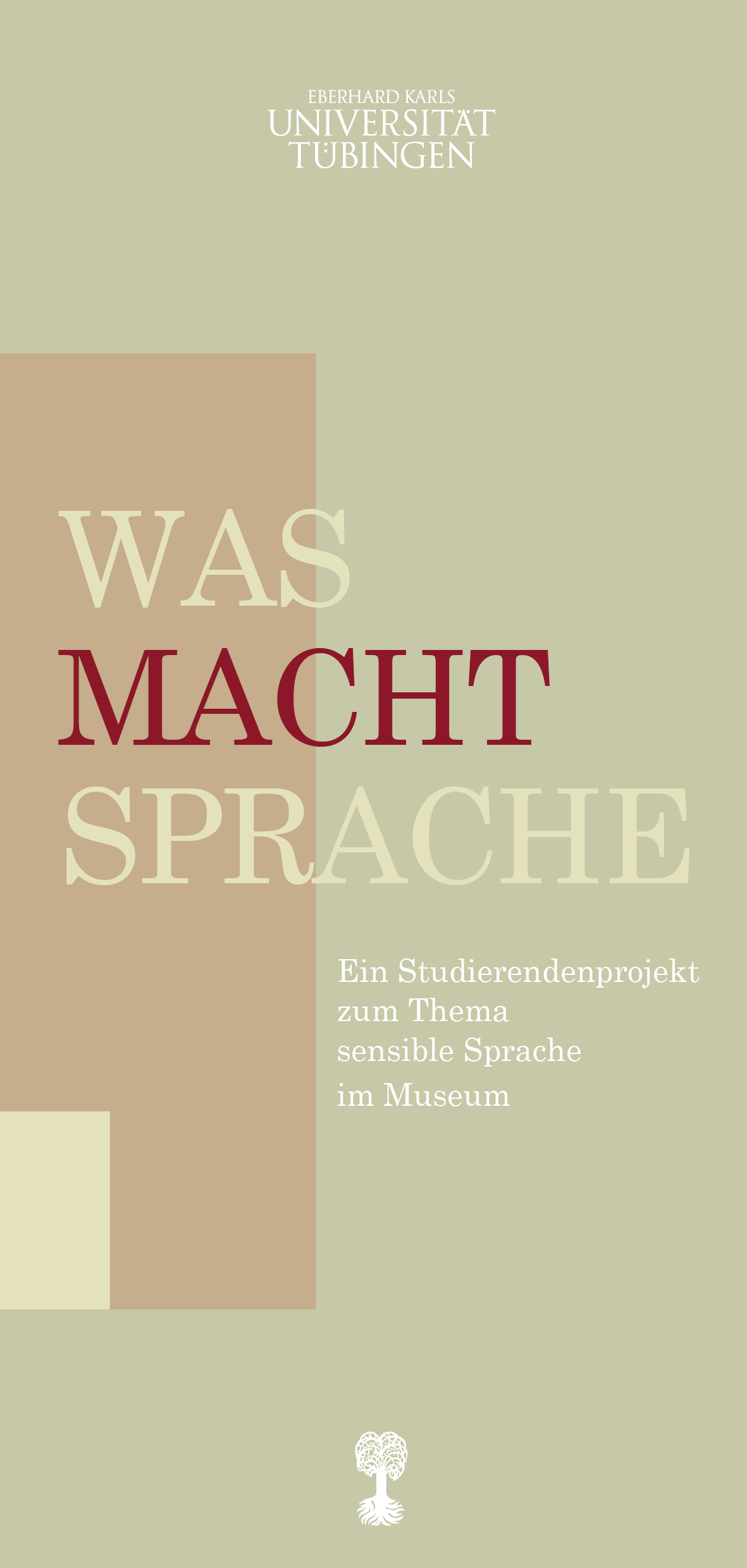Sensitive language
THE POWER OF LANGUAGE
A student project on sensitive language in the museum
In everyday life, many people complain that “they are not allowed to say anything anymore”. This often disregards the power of language and what certain terms can trigger in those affected. However, language cannot only be hurtful, but can also reproduce and thus manifest discriminatory stereotypes within society. Therefore, it is important to recognize that language is an ever-changing process. Both individual and institutional language use should always be questioned and reflected upon. After all, even in museums and exhibitions, a closer look can reveal terms that appear more problematic in today‘s world than they did just a few years ago.
As part of the practical seminar “Sensitive Language in Provenance Research and Museums” (summer semester 2023), we – students from various humanities – looked for terms in the permanent exhibition of the Museum of the University of Tübingen (Museum of Ancient Cultures, Castle of Hohentübingen) that might be problematic. The attribution “problematic” in this sense not only means terminology that is overtly discriminatory (racist, anti-Semitic, ableist, sexist, or homophobic), but also terms that obscure or gloss over the circumstances and events of the objects’ acquisition. One example is the word “expedition”. For many centuries, and even into the near past, so-called “expeditions” were carried out, sometimes even with state support. Scientific “expiditions“ served to explore a region that was unknown from a European perspective. The information gathered was in turn used by colonialists, for (often unjust) land reclamation and the seizure of cultural assets from the local population, which can be found in European museums today.
In the remainder of this booklet, we try to offer readers some insight into the terms we find problematic and/or discriminatory and explain their historical contexts. We then suggest alternative terms where possible, but these may change again in the years to come. These suggestions are based on extensive research and source work as well as our own empirical data. However, especially in the colonial context, there are many forms of discrimination to which we will never have direct access because we are not directly affected by them.
With this first attempt, we would like to take a step towards “sensitive language” in the museum of the University of Tübingen and invite readers to question and reflect on certain terms in our everyday vocabulary.
Within the German texts of this booklet, we try, when possible, to use gender-neutral terms for people. If no such word exists, we utilize the form with gender asterisks *. Thereby, we aim to address all readers equally, regardless of their gender. The asterisk allows people with all gender identities to be considered and made visible. For words whose use is actively hurtful, we have chosen not to write out the terms. Instead, an underscore _ is used as an interruption and individual letters are omitted so that the word is still recognizable.
Note: This booklet deals with terms that may be politically problematic or disturbing, emotionally upsetting or distressing for some people. It does not claim to be complete or accurate. Future changes are possible.
Student authors
● Johanna Annau
● Justina Berns
● Thorben Eulenberg
● Vera Gruber Ibañez
● Diellëza Hyseni
● Ronja Josephine Koebler
● Naomi Lüderitz
● Ann-Kathrin Neff
● Teresa Pohl
● Paul Weber
● Simon Zauner



